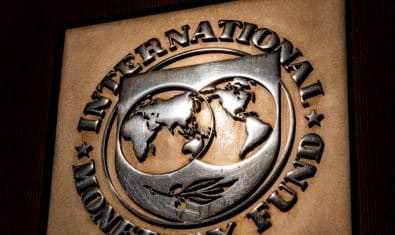Duties in Pakistan are high, at an average of 13.7 percent on the imports of digital goods, subsequently increasing production costs for all sectors in the economy.
According to a study released by Gallup Pakistan For World Bank Group “Digital Pakistan: A Business and Trade Assessment”, duties on imports constrain access to high-quality inputs needed in downstream IT-sectors in Pakistan.
The reduction should be gradual and focus on products included in WTO’s Information Technology Agreement. On domestic taxation, there are two related issues:
- Taxation policies,
- Tax administration and practices (governance).
This issue requires urgent attention from the authorities at the central and provincial levels. Pakistan will benefit from simplification and better coordination of tax authorities.
Digital technologies will become more relevant to support government services and policies, including during emergencies such as the COVID-19 crisis to support businesses and households that are immediately affected by policy responses and economic slowdown.
Pakistan should seize digital trade opportunities as they are becoming increasingly important for the world economy. Between 2004 and 2017, world ICT services exports as a share of global GDP has more than doubled from 0.30 percent to around 0.66 percent.
Obstacles in the Growth of Pakistan’s IT Sector
The report analyses the recent trends in Pakistani Information Technologies (IT) and Information Technologies enabled Services (ITeS), as well as obstacles for various firms. The obstacles faced by Pakistani IT companies are causing an increase in the costs of selling services and may reduce the capacity to compete both in the local market (Pakistan) as well as overseas (exports).
These obstacles include direct costs generated by policy barriers that limit market entry but can also include infrastructure deficiencies, geographical location, and institutional capacities, and/or obstacles imposed by regulatory measures.
Among the latter obstacles, examples include difficulties in accessing the information necessary to operate in a market, the predictability and stability of the business environment in a particular market, and the quality of the decision-making process and administrative procedures of competent authorities in the domestic and export markets.
Currently, Pakistan’s IT services firms face problems in foreign markets while trading. In most part, these problems are of trade facilitation as they relate to the regulatory requirements in export markets. They are an entry barrier for Pakistani firms because they create compliance costs when entering the market, For example, work permit regulations or entry visa requirements.
The latter is the single most crucial issue identified by Pakistani exporters. By contrast, regulatory predictability, time frames, and applicability of regulations in foreign destinations are less of a problem. Engagement with trading partners will be critical for dealing with visa restrictions.
Pakistan’s IT services firms also face obstacles in the home market. Survey results showed that the two most important domestic issues relate to electricity shortages and IT infrastructure. The latter includes the country’s telecom network market as well as IT-goods that are necessary as an input for producing and exporting IT services.
The next two most significant problems that firms face in Pakistan are regulatory: insufficient intellectual property rights protection and the entry of foreign competitors in export markets.
Recommendations for Pakistan IT and ITES Sector
The government should accelerate the implementation of e-government solutions and move to a process of automation in government-to-business interactions. While progress has been significant in recent years, for instance, connecting farmers to markets, Pakistan is still lagging on government digitalization.
Pakistan should develop policies to accelerate the adoption of digital solutions, in collaboration with the private sector, to improve service delivery in a post-COVID-19 policy environment.
Pakistan should evaluate a strategy to engage in trade agreements to address its business interests proactively. Regional and bilateral trade agreements are likely to be central in driving connectedness to markets in the future given the existing challenges at the multilateral level.
While the role and contribution to the internationalization of Pakistani firms of the PSEB are recognized, the institution can be strengthened. PSEB should dedicate more effective efforts to support firms’ participation in international promotion activities in coordination with the Trade Development Authority of Pakistan while maintaining its efforts to facilitate business activities and streamlining procedures and regulations.
PSEB is perceived as a relatively weak organization that has not attained the performance expected from businesses and does not strategically use Pakistani representations abroad. PSEB should learn from and adopt good promotion practices from successful experiences including from Costa Rica, India, and the Philippines.


























